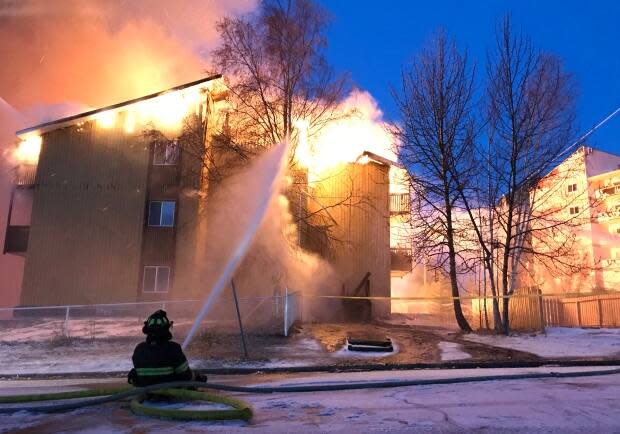N.W.T. judge overturns rental office decision on YWCA housing

Transitional housing programs run by the Northwest Territories YWCA are not subject to the law that sets out the rules for all landlords and tenants.
In coming to that conclusion, a Northwest Territories Supreme Court justice overturned a decision by a rental officer who came to the opposite conclusion.
The case involved a Yellowknife client of YWCA's Supportive Housing Program who was living with his children in a rental unit in Simpson House Apartments that the YWCA was leasing. The program is designed to provide housing for people who are homeless or at risk of becoming homeless. The family was relocated to the basement apartment shortly after a fire burned down the YWCA's Rockhill apartment building.

Slightly less than a year after the man and his family moved in, the owner of Simpson House Apartments, Northview Properties REIT, gave the YWCA 48 hours notice that it had to vacate the unit that the man and his children were occupying.
Northview said it wanted the man out because a guest of his had been overheard threatening to burn down the building. Northview said it was just the latest, and most serious, of a number of complaints it had received about the unit.
The YWCA offered the man alternate accommodation but he refused to move, even breaking back into the unit after the locks were changed. Then he filed a complaint with the rental office, alleging he had been improperly evicted. The central issue in deciding the complaint was whether the Residential Tenancies Act applies to transitional housing.
Rental officer Adelle Guigon concluded that the same rules that apply to all rental housing apply to the housing the YWCA is providing in its Supportive Housing Program. She awarded the man $420 in rent for a week that he had been barred from his apartment.
A result of the decision was that, regardless of any agreements it has entered into with clients, any time the YWCA wanted to remove someone from its transitional housing it would have to get an eviction order from the rental office.
'Squarely' within exemption
But in a decision released yesterday, Justice Karan Shaner said Guigon's analysis of whether the Residential Tenancies Act was flawed in a number of ways. Shaner said Guigon's conclusion that only facilities where accommodation is incidental to another program, such as correctional or addictions treatment centres, are exempt from the Act was too narrow.
"It does not matter whether the accommodation was provided incidentally to the therapeutic or rehabilitative services or the other way around," wrote Shaner in her decision. "Had the Legislature intended to limit [the Act] in this way, it would have expressly included this qualification. It did not."
Shaner concluded that, "YWCA's Supportive Housing Program falls squarely within the exemptions specified [in the Act].
The YWCA did not immediately respond to a request for comment.

 Yahoo Movies
Yahoo Movies 